The Importance of Play
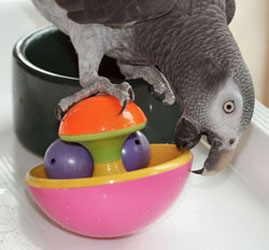 In order to ward off dependency problems later in life, it is very important to foster the ability to play independently within young birds. Parrots who are exposed to and encouraged to explore a variety of safe toys with novel colors, textures and shapes at an early age often grow up to be more confident, less fearful and more independent.
In order to ward off dependency problems later in life, it is very important to foster the ability to play independently within young birds. Parrots who are exposed to and encouraged to explore a variety of safe toys with novel colors, textures and shapes at an early age often grow up to be more confident, less fearful and more independent.
Often we hear of older birds whose owner's insist that they "don't play with toys". Many of these birds were raised without opportunities to explore a varied environment. Many of these birds also exhibit negative behavioral traits (feather plucking, screaming, biting, etc.)
For these reasons, we believe that providing opportunities for play is only second in importance to addressing diet and nutrition. The benefits of play crossover multiple enrichment categories:
- Physical health is improved through increased exercise
- Emotional well-being is enhanced by providing opportunities for mental stimulation and social interaction
- Instinctual needs to chew and forage can be fulfilled by proving the appropriate toys.
Is it possible to teach an older bird to play? You bet. The key is not to give up if your bird doesn't play with the first few toys you've bought for him. There are many types of toys that fulfill a wide range of needs. Just like we humans have different hobbies and play preferences, our birds also have varied interests, personalities and play styles. Once you find something that grabs your bird's attention then they may be interested in expanding their horizons.
Here's some hints on other ways to stimulate your bird's interest in toys:
- Start out with easily destructible toys and items such as those made of paper or vine materials.
- Weave shredders between bars or hang an old phone book through the bars on the top of the cage.
- Once your bird enjoys the "easy chews" then introduce toys with increasingly more durable toy components such as cardboard toys, wooden balsa or pine slats and other fun parts to manipulate.
- Hide your bird's favorites treats within foraging toys to encourage exploration.
- Model play behavior and stimulate your bird's interest by playing with and showing interest in a particular toy yourself.
- Play fun games with your birds. It will help foster a happier, more rewarding relationship with your bird.
Keep your bird's mind stimulated by providing a variety of toy types and periodically introducing new toys and rotating old toys.
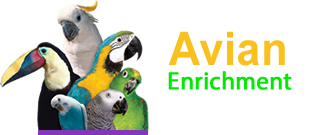


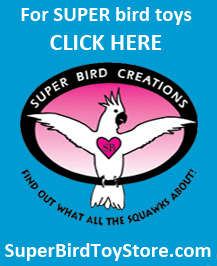
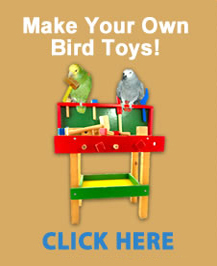
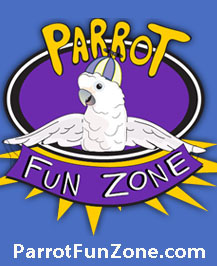
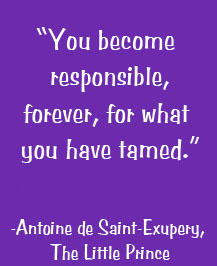
Comments powered by CComment